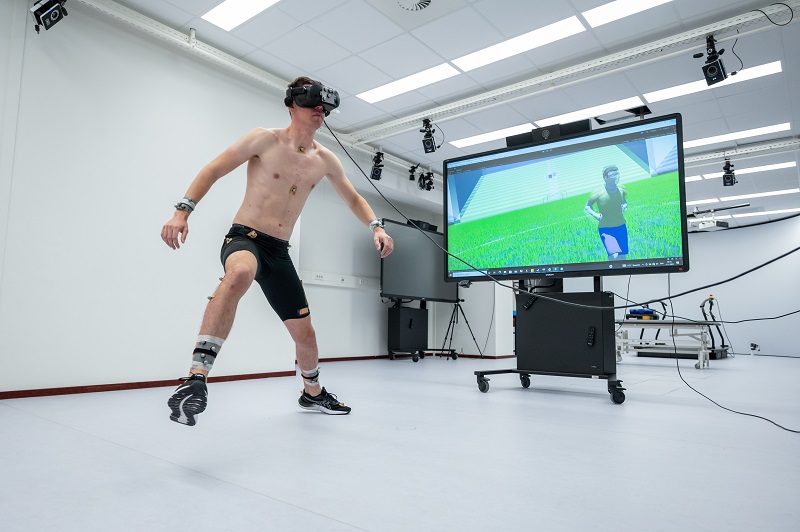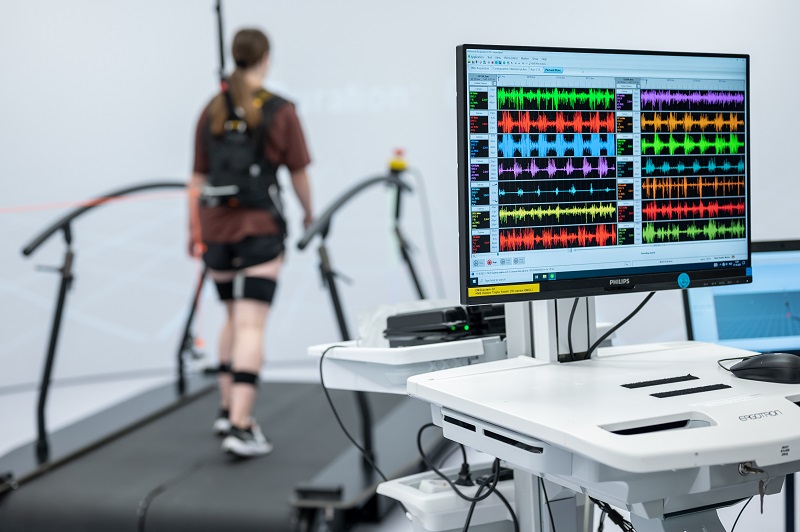Serious games for research
Serious Games as a Research Tool Games as a Method Serious games can contribute to scientific research in many different ways and at many different stages. Think of collecting quantitative…
With the rise of ChatGPT, Artificial Intelligence (AI) has firmly entered the public sphere. However, AI transcends beyond just smart text generation or rapid image creation. What do we mean by AI, how do we apply it in our games, and above all, how do we use AI responsibly? In this article, we’ll discuss the opportunities and dangers of AI for the serious gaming sector. We’ll also showcase examples from our portfolio to demonstrate how AI can improve the impact of games – and how we’ve utilized it in recent years. Lastly, you’ll learn more about our participation in ELSA Lab Noord-Nederland, a consortium focusing on the responsible development and application of AI in healthcare. Enjoy the read!
AI, or Artificial Intelligence, is a branch of computer science focused on creating machines and systems capable of performing tasks that typically require human intelligence. This includes learning, logical reasoning, and decision-making. Although the societal debate around AI has only recently gained momentum, particularly with the emergence of ChatGPT in late 2022, AI has been a part of our lives for quite some time. For instance, anyone who has interacted with devices using commands like “Hey Google” or “Hey Siri” has experienced AI. Such widely-used speech recognition technology analyzes, understands, and learns, providing increasingly relevant responses over time. In essence: that’s AI!
AI systems employ various techniques, but fundamentally, they involve the computer swiftly analyzing vast amounts of data, identifying patterns within that data, and generating the most appropriate output as a response to your query. This output could be rapidly generated text, as seen with ChatGPT, or it could be a self-driving car’s braking action, a computer-generated image of your pet in Picasso’s style, or a spot-on recommendation for a new friend on Instagram. In short: AI is everywhere, has been for a while, and its possibilities are endless.
Of course, ChatGPT has myriad ideas regarding the opportunities and risks of AI in serious games. Some are meaningful, while others might be repetitive or nonsensical. We’ve extensively researched, edited, and discussed them before they made it into the lists below. Here lies the crux: tools like ChatGPT (and on the graphic front: MidJourney) are aids, not holy grails. Human intelligence and expertise are necessary to evaluate the output and supplement it where necessary.
Artificial Intelligence isn’t a newcomer, especially not for the serious gaming sector. Our team is always exploring ways to optimize the learning experience within our serious games, both now and in the past, particularly in the realm of AI. Here are a few examples from our portfolio:
Although we strive to be pioneers in the implementation of new technologies, we also believe that serious gaming companies bear a societal responsibility in the development and application of AI. Especially considering that many serious games are used in sectors such as healthcare and education, where ethical conduct is of paramount importance. That’s why 8D Games is a member of ELSA Lab Noord-Nederland. This consortium focuses on developing knowledge crucial for the responsible development and application of AI within the context of healthcare.
Furthermore, in 2022 8D Games and UMCG’s Data Science Center in Health (DASH) joined forced to create and launch the board game AI+ Hospital. This game brings professionals together to discuss responsible use of artificial intelligence (AI) in healthcare. Over the past year, more than two hundred healthcare professionals from twenty countries have played the game – and its impact appears to extend far beyond the walls of the UMCG, which initially had the game printed in a small edition.
One thing is certain: AI in serious gaming will continue to contribute to solutions for healthcare and education. And if we handle this responsibly together, it can lead to very positive changes.


Serious Games as a Research Tool Games as a Method Serious games can contribute to scientific research in many different ways and at many different stages. Think of collecting quantitative…

Serious games for healthcare are making their rise. But if you have never used such a game yourself, the whole idea remains somewhat abstract. What added value do games have for healthcare and what concrete examples are there? Get inspired by cases from our portfolio.